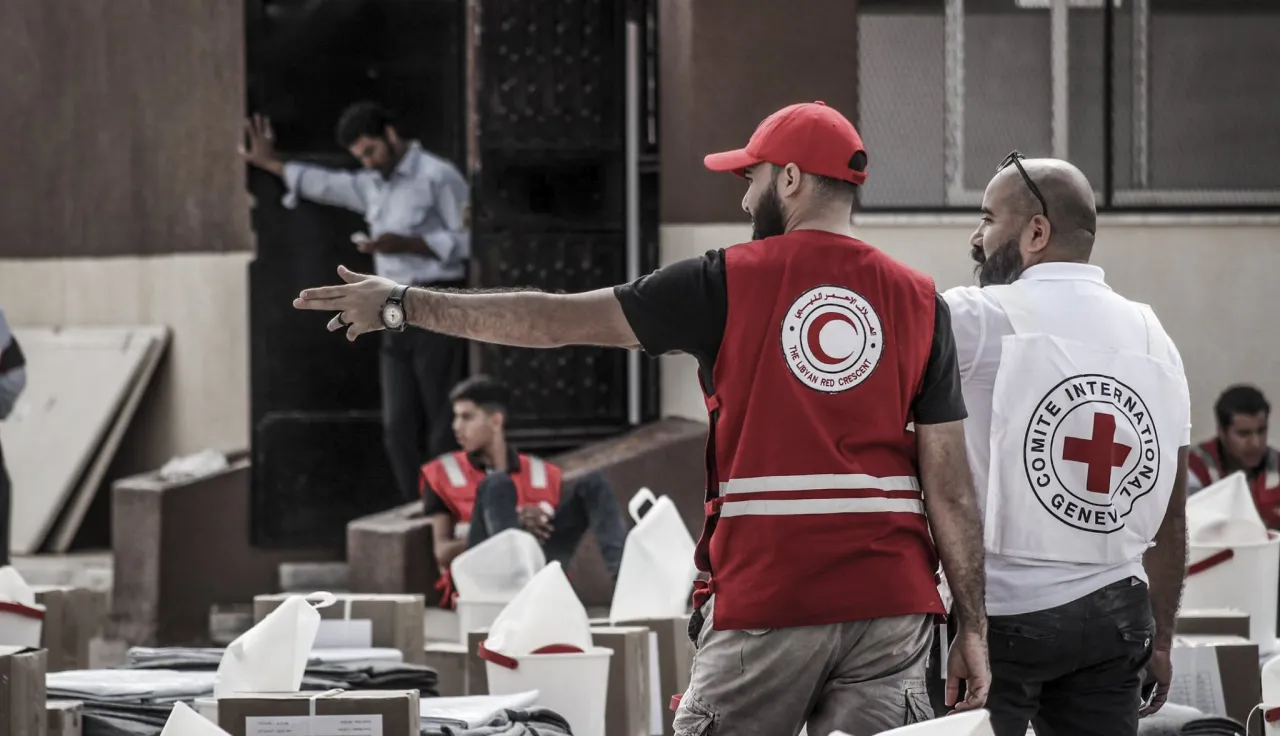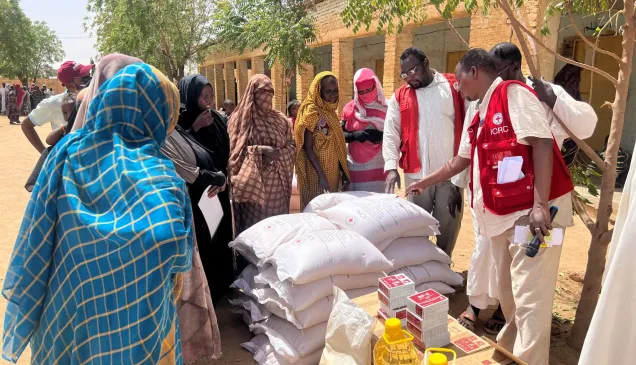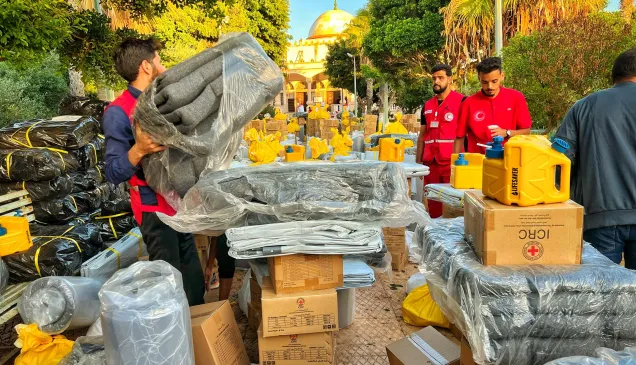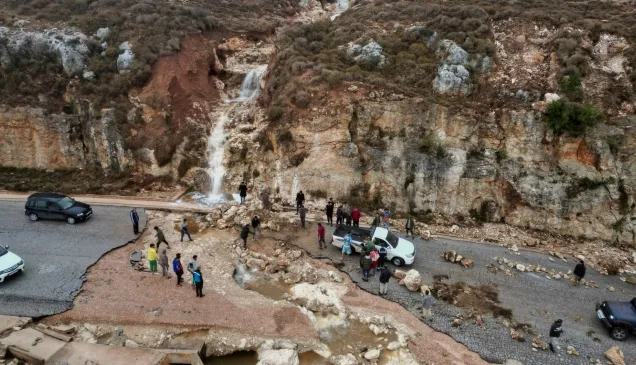ICRC activities in Libya 2021

While large-scale hostilities in Libya have subsided since 2020, the repercussions of a decade of armed conflicts still reverberate across the country. Peace remains fragile as the political landscape remains in flux, with any deterioration of the security situation bound to have an overall impact on all sectors and segments of life in Libya. The most affected would be the civilians and those displaced due to fighting.
The International Committee of the Red Cross (ICRC) continues its response to meet Libya’s significant humanitarian needs in 2022.
The ICRC in Libya delivers assistance in the realms of healthcare, economic security and water, and sanitation. We support hospitals, primary health care clinics and physical rehabilitation centers with equipment and consumable materials. We implement water and sanitation projects in support of public institutions to ensure water and sanitation services are provided to the communities. We distribute food and non-food items (such as blankets and kitchen material) to internally displaced communities including returnees, and also provide cash grants and other support to help them build their livelihoods.
Through our protection programme, we visit detention centers, restore family links by tracing individuals who have lost contact with their families as a result of armed conflict or migration, run a forensic program to ensure that Libyan institutions have sufficient technical knowledge for dignified management of the dead and deliver training sessions on international humanitarian law. Together with our partner, the Libyan Red Crescent Society (LRCS), the ICRC has scaled up its response through four offices in Libya – Tripoli, Benghazi, Misrata and Sabha – supported by an office in Tunis. We share with you some highlights of our humanitarian activities carried out in 2021.



